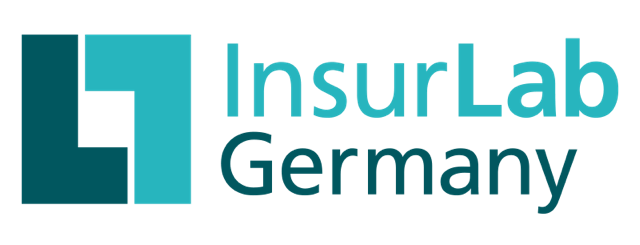At Link Big everything revolves around purchasing behavior. A "smart link" recognizes the customer's buying behavior and directs them directly to the appropriate insurance offer. Using GDPR-compliant smart links (e.g. via a newsletter's call-to-action button) makes the customer experience more personal and seamless - which significantly increases the conversion rate of mobile website visitors. Nadav Raviv is founder and CEO of Link Big and shares his personal experiences working with corporates.
Our background
In the summer of 2016 Link Big as one of 5 startups, admitted to the large John Lewis Accelerator (Jlab). After a two month pilot at JL headquarters in London, we then secured a £50,000 investment from JL & L Marks. The tips I want to share with you today are my personal learnings from that time. Maybe they will help you with one or the other project!
1. make it count!
When I asked John Lewis CIO, Paul Coby, what the best advice was for the dialogue between us, the startups, and the executives in the organization, his response was, "Your job is to prove that the time and effort we spend on you is worth it." In Enterprise, every second counts. So make sure every stakeholder gets value from your collaboration.
2. learn to listen
"The best doctors are good listeners. Listen carefully to your patients - study them. Then make their own diagnoses" . This is the translation of a well-known medical saying and ultimately it applies to our work as well. Because you will later earn from what you have learned by listening. Learn to read between the lines and dare to act accordingly. Ask lots of questions and write everything down to reflect on when the time comes. Chances are, you'll be able to put the information to work at some point, making all the difference.
3. become personal
From pitching to the first meeting with the IT team to getting to know the Sale people, prepare a custom deck for each and every appointment! This applies to 1:1 meetings as well as emails. No "one deck fits all" solution will get you there, because in the end you won't meet any demands. Always take the time to study the needs/values/norms/goals/challenges of your (potential) project partner and show all stakeholders individually why exactly YOUR product is the solution to their problems. Don't let them figure it out and research it themselves.
4. don't be a superhero
Don't be the superhero who rushes to the rescue... Be more like the kid in Willy Wonka's chocolate factory who joined the joy of the factory workers :-). You are not here to "save" anyone. Your success is much more likely if you are "one of them" and manage to motivate and carry them along like that.
5. prepare agenda
To be a "gold digger" (and show it to everyone), set an agenda with clear goals before each meeting and share it in advance via email. People in the organization are busy, and good preparation shows that you respect the time of your project partners. Plus, it lets you set the stage to get the best answers (and sometimes questions) out of the meeting. It saves time for them (and you) - so always do it.
6. call to action - for yourself
The flow between startups and corporates is in one direction: from them to you. Therefore, never tell them what to do! They have enough tasks of their own that have nothing to do with your project. They only need to do the tasks that are necessary to move the project forward. No more and no less. You are the service providers.
7. fair everything
"What cannot be measured cannot be managed". From there it is: KPIs for everything, because your direct success depends on it. After all, statistics alone are relevant to potential investors/customers. Measure everything - from how long it takes to get work done to cloud costs - and build the stats into your communications. People will be able to process your input faster and you will give the impression that you have everything (more than) under control.
8. share, share, share
To inspire trust in the employee and maintain interest, startups should be very transparent about their goals, actions, statistics, progress, and results. Therefore, check in often! But remember: every contact must bring added value. I.e. no graffiti in the company cafeteria, but why not a weekly progress report to relevant people in the organization? This stays in the memory without being intrusive.
9. empathy wins
You will better understand many of your project partners' decisions if you feel as one. If you recognize the pressure the leader in front of you is under and if you can understand their goals and intentions, the collaboration will be easier, safer and more successful.
10th Challenge accepted!
In corporate bureaucracy, there are many obstacles that are put in the way of a startup. But don't let them discourage you, embrace them as part of the game. My tip when it comes to breaking through walls (or glass ceilings) is to include the word "yet" in the problem description such as "I couldn't get a meeting with the CTO yet". Try to change your perspective and communicate it to the outside world as well. This way you show your bite and motivate yourself to go new ways. Think about "what haven't I tried yet to reach my goal?", roll up your sleeves and do it!
11. fall in love with the problem, not the solution
The first step to success is to be a PROBLEMMAKER. Always focus on the specific challenges of your customers. What are their problems and priorities? How exactly and by what method did they identify them? How does problem feel to the employees/partners/customers and what impact does it have on the future of the company? Only if you manage to become one with the problem, you can offer the best solution for it.
12. deliver!
The most important tip at the end: You have to deliver! Don't promise the blue of the sky, but only what you can really offer - and then overdeliver! That is, ALWAYS meet the expectations of your customers and rather go one better afterwards than to make false promises before. First and last impressions count. Rock it!
Link Big - Real-time intelligence for your links! Your partner for more personalized CX and more ROI for insurers. If you want to learn more about Link Big, click here.

